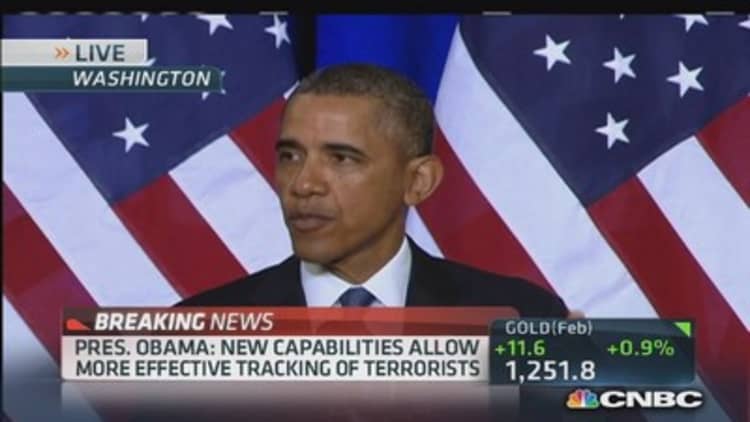Marissa Mayer, chief executive of Yahoo, has said that 2014 will be a "tipping point" for the evolution of the Internet.
This year is one of the most important ever for the Internet and technology, according to Mayer. "Really fundamental things are happening," she said in a debate about the future of the digital economy at the World Economic Forum in Davos, Switzerland.
"When you look at mobile, when you look at the bandwidth, when you look at the Internet of things, it's going to change everyone's daily routines really fundamentally," she added.
(Read more: Marissa Mayer's De Castro Buh-Bye Memo to Yahoo Staff)
"By the end of this year we (Yahoo) will have more mobile traffic than PC traffic," she said.
(Read more: Cramer: Mayer the 'heir apparent' to Steve Jobs?)
Back in 2010, internet research firm Comscore predicted that mobile users would surpass desktop users within five years, utilizing data available from Morgan Stanley.
The Yahoo CEO also told delegates at the World Economic Forum said that the current data privacy situation is "murky" and called for a global debate on transparency following revelations of data monitoring by the National Security Agency (NSA), together with other panelists including John T. Chambers, chairman and chief executive of technology company Cisco, Randall L.Stephenson, chairman and chief executive of telecoms companyAT&T, and Gavin Patterson, chief executive of U.K. telecoms company BT.
"When you go through security at the airport, when you sign up for a driver's license, you know exactly what you getting from the government in exchange," she said.
"I think that's what's murky...people don't know what information is being collected and how it's being used. And that's the transparency that we are asking for and trying to awaken a debate on."

When Edward Snowden, a former NSA programmer, leaked details of the agency's surveillance of U.S. citizens last year, it ignited a debate about online privacy and caused friction with U.S. allies like Germany.
(Read more: Yahoo beats Google to the top spot for US web traffic
There will never be 100 percent privacy for consumers, the panel said, because of the need for some government monitoring to investigate criminality. Mark Benioff, chief executive of Salesforce.com, the online recruiter, said that the future would probably involve an "opt-in transparency."
—By CNBC's Catherine Boyle





